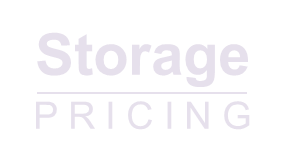Tegile Systems today introduced the two latest entries into its award-winning product line that perfectly balance data management, performance and economics the T3400, which provides a flexible amount of high-density flash solid state drives (SSDs) and metadata-accelerated high-density hard disk drive (HDD) storage; and the T3800, the company’s newest flagship all-flash array that eliminates the top three customer challenges associated with offerings from other all-flash vendors.
www.tegile.com.
T3800 100% Flash SSD
The Tegile T3800 features high-density enterprise flash SSDs designed to support mission-critical applications that require extremely high performance at low latency for extended periods of time. Issues that customers typically have with all-flash storage systems are expensive price per gigabyte, short-lived components and lack of density comparative to hard-disk drive systems have been rendered obsolete with the introduction of the T3800. In a typical mixed-application environment, Tegile achieves a 5X data reduction to realize a $1/GB street price. The array’s 10PB per drive endurance allows Tegile to offer an industry-best seven-year warranty without the need for periodic wholesale system upgrades. At 55 effective terabytes (TBs) per U, the T3800 goes well beyond traditional HDD-based array density.
T3400 50% Flash SSD
Tegile’s previous flagship hybrid array had approximately five percent of its capacity in flash. With the introduction of the T3400, Tegile now offers a storage architecture featuring half of its capacity in flash SSDs and half in HDDs, resulting in a 20X increase in flash density over previous models. The T3400 base configuration includes 22TB of high-density flash storage and a 2.2TB metadata acceleration engine. Optional upgrades include HDD expansion shelves with either 24 or 72 raw TB; or SSD expansion shelves with either 48 or 144 raw TB.
….
Tegile’s latest enterprise-class arrays are built on the company’s third-generation IntelliFlash technology that provides the high performance, capacity and reliability that organizations desire at a relatively low cost. Data reduction technology provides a usable capacity that’s greater than the arrays’ raw capacity. A no-single-point-of-failure architecture, automated snapshot and thin replication features make them more reliable than competitive alternatives.
Like its previous flash-driven storage arrays, Tegile’s T3400 and T3800 feature four eight-core Xeon processors, significant memory, sizable read and write caches using flash, multiple networking interfaces, dual power supplies and hot disk spares to provide high performance at low cost. The systems’ software simplifies administration and optimizes storage for various applications, including virtualization, file services and databases. All-inclusive pricing for features such as auto-snapshot, auto-replication, near-instant recovery, on or offsite failover, and virtualization management provides simplified software licensing at a fraction of the cost of storage incumbents.
Utilizing SanDisk
“SanDisk has been working diligently with Tegile to drive flash density upwards, while also addressing the durability needs of write-intensive environments, such as those presented by many Tegile customers,” said Steve Fingerhut, vice president of Enterprise Storage Solutions at SanDisk. “The density, performance and endurance attributes of SanDisk Enterprise SSDs utilized in Tegile’s all-flash arrays, deliver high-performance, high-reliability storage for the most demanding enterprise data center environments.”
All Tegile products, including the T3400 and T3800, are available through Tegile’s consumption-based leasing,Tegile’s Agility Pricing Program, paying only for the amount of data space utilized as low as 20.6 cents per GB a month. The program was designed for cost-conscious customers who are interested in leveraging cloud economics but who are unwilling or unable to relinquish control of their data to third-party providers at pricing competitive to Amazon S3.
